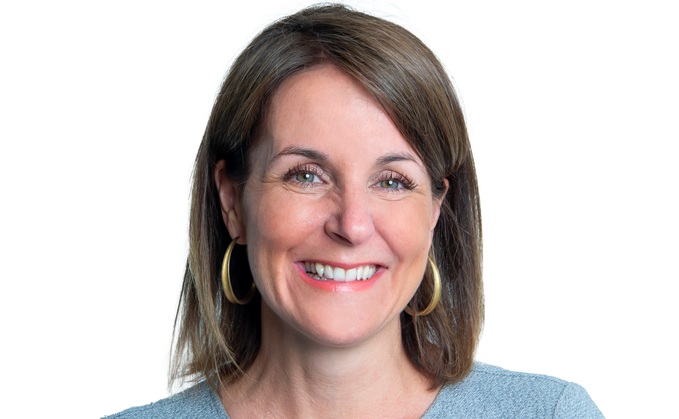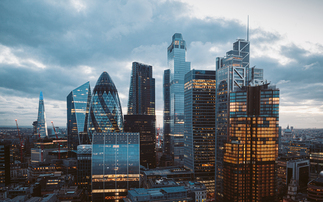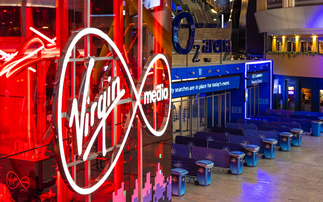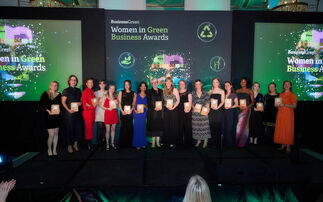
Credit: Eunomia Research and Consulting
Ahead of the consultancy’s sponsorship of the UK Green Business Awards, Eunomia Research and Consulting CEO Jonquil Hackenberg talks to BusinessGreen about how she built her career in sustainability, why climate change is first and foremost a people challenge, and what her green superpower would be
Jonquil Hackenberg is the CEO of Eunomia Research and Consulting, which helps companies and governments to develop policies and strategies for using fewer resources and instead focusing on reuse, conservation and regeneration. Before joining Eunomia, she held leadership roles at Infosys and PA Consulting, and more recently spearheaded a global market campaign for the COP26 UN Climate Summit focussed on green-tech scale-up and the convergence of water and carbon. Hackenberg is a passionate advocate of sustainability, life-long learning and diversity within the workplace. She is also a trustee of the Design Council, a regular contributor to Forbes on green tech, and a keen sailor.
BusinessGreen: What was your first role in the green economy and what attracted you to the sector?
Global head of sustainable business at Infosys. As a consulting partner focussed on tech-enabled strategy for our clients, I was driven by value for clients. And for me, value was long-term success as opposed to short-term gain. This naturally led me to sustainable business through the nexus of technology and climate response.
What parts of the green economy are you most excited about?
The art of the possible, particularly with the circular economy and energy transition, where one industry's waste is another's value creation opportunity.
What developments do you think are currently under the radar?
Anything related to waste and to water and job creation. We spend inordinate time talking about the myopic challenge of decarbonisation, when we don't necessarily understand what it is. Linking nature to the circular economy has a natural relationship with decarbonisation - one begets the other. If we only think decarbonisation, we don't think system and so end up causing new challenges.
What is the biggest misconception about the green economy?
There are so many! One is that it's 'only' about environment - rarely do you hear anyone leading with poverty alleviation or socio-economic uplift, which is actually the intent of the UN Sustainable Development Goals (SDGs).
In an attempt at an insult once a former senior executive in the consulting industry once said to me: "The misconception about sustainability is that it's full of tree-huggers, whereas do you [me apparently being a tree-hugger] think there may be a commercialisation opportunity?" This, after me having just presented our go-to market strategy (and demonstrated successes) to our most senior global leaders. It's exactly that: the green economy is about value creation - which doesn't necessarily mean grow bigger; it means grow differently, with 'unwasted' or 'zero waste' in mind, within planetary boundaries.
What do you see as the biggest challenges to the net zero transition?
People! Climate is not an environmental problem; it's a people problem. Too much chat without sufficient action - we just need to get busy doing. We need to change the narrative and focus on where we are having successes, as opposed to preaching 'we're doomed!' constantly.
What advice would you give to someone looking to work in the green economy?
Understand the meaning of value creation first. Value creation is about 'unwasted'. Then, focus on one area which excites you and where you can bring your existing experience (work, study - it doesn't matter) to the fore - and engage with the system. The green economy is huge! It's effectively the existing economy, reimagined to be within planetary boundaries.
So wherever you work, ensure that the organisation has sustainability front and centre of their overarching strategy. Saving the planet is admirable, but it has to be done with value creation in mind. Value creation means everything from repurposing waste to reskilling people and green commercial success.
What projects or achievements are you most proud of?
On a company level, I'm proud of the fact that every single piece of work we undertake at Eunomia is solving for either environmental impact or socio-economic impact, or, ideally, both. I'm proud that this has been recognised through B-Corp certification across all our entities, globally this year.
What can the green economy do to better promote its successes?
Demonstrate value creation and turnaround of longstanding organisations; of long-standing cities and communities. It's much easier to build something new with sustainability at the heart of the design of the organisation; it's a whole other story to 'retrofit'. We need to celebrate successful retrofits - of jobs; of livelihoods; of commercially viable success all within planetary boundaries.
What would your green superpower be?
Green light speed engineer - breaking all political and technical boundaries to scale up innovation at lightning speed.
Jonquil Hackenberg is CEO at Eunomia Research and Consulting.
Eunomia Research and Consulting is sponsor of the Company of the Year category at the UK Green Business Awards 2024, which will take place on the evening of 12 June at The Brewery in London. You can reserve your place at the awards here.






